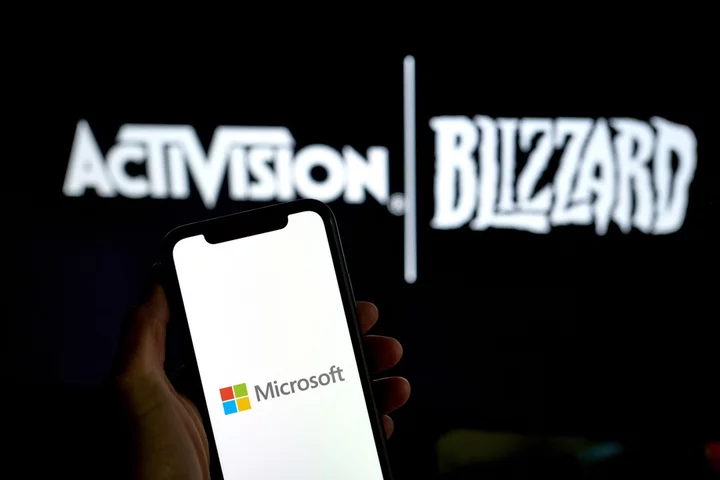The US Federal Trade Commission’s chances of holding up Microsoft Corp.’s $69 billion bid to buy Activision Blizzard Inc. appeared uncertain after a federal judge challenged the agency’s argument that the proposed transaction would hurt gamers.
US District Judge Jacqueline Scott Corley in San Francisco needled FTC lawyers Thursday over why they think Microsoft could hurt consumers by excluding Activision games from consoles sold by rivals, including Sony Group Corp.’s PlayStation.
“This case has really always been about Call of Duty,” Corley said at the conclusion of a five-day hearing, referring to Activision’s top-selling shooter game, which Microsoft executives vowed in court would be available on Sony consoles if the takeover goes through.
Corley must decide whether to temporarily halt the biggest-ever video game deal — which has a July 18 closure deadline — while the FTC’s legal challenge to the blockbuster transaction plays out.
The case represents a major test for the FTC’s ability to block tech deals after the agency lost an attempt to challenge an acquisition by Meta Platforms Inc. earlier this year. US authorities, however, are not the only ones who have questioned the Activision acquisition. UK competition regulators vetoed it, though Microsoft is appealing that decision. Canada on Thursday filed a letter in court expressing concerns that the deal is anti-competitive.
Read: Microsoft CEO Says ‘Call of Duty’ to ‘100%’ Stay on PlayStation
Corley displayed skepticism when an FTC attorney said Microsoft could try to gain an advantage in the market by offering special Christmas-themed Call of Duty characters only to users of its own Xbox consoles.
Where’s the expert analysis “of people who care so much that they would actually switch and buy an Xbox that they wouldn’t otherwise buy?” the judge asked.
Microsoft’s attorney, Beth Wilkinson, argued the onus is on the FTC to show how consumers would be harmed. “That is their job,” Wilkinson said. “You want to stop” a $69 billion transaction, “but you cant figure out what the harm would be?”
Corley pressed the FTC to “spell out” how the deal would also harm consumers in the markets for subscription and cloud gaming, which lets gamers stream games to PCs and consoles rather than downloading them.
The deal gives Microsoft the “ability to turbo-charge” its GamePass subscription service and leave Alphabet Inc.’s Google and Amazon.com Inc. “in the dust,” FTC lawyer James Weingarten said.
But Corley pointed to the agreement Microsoft struck to bring Call of Duty and other titles to Nvidia Corp.’s Geoforce Now cloud service. She suggested the FTC “won” because Microsoft faced regulatory pressure to enter such partnerships.
“We have no evidence” that the FTC won, Weingarten said, while arguing that Microsoft didn’t do any financial analysis on how such deals would benefit the gaming industry.
Nvidia’s deal will let it add Microsoft’s own gaming catalog to its subscription service, whether or not the deal goes through, Weingarten said. It also includes other “sweeteners” related to Microsoft’s Windows, he said.
“Content is key. And this is key content,” he said.
The case is Federal Trade Commission v. Microsoft Corp., 3:23-cv-02880, US District Court, Northern District of California (San Francisco).
--With assistance from Leah Nylen.
(Updates to add details on Nvidia agreement in 13th paragraph.)

